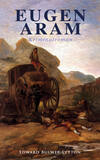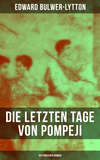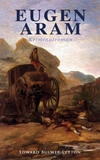Kitabı oku: «Athens: Its Rise and Fall, Complete», sayfa 35
CHAPTER V
Change of Manners in Athens.—Begun under the Pisistratidae.—Effects of the Persian War, and the intimate Connexion with Ionia.—The Hetaerae.—The Political Eminence lately acquired by Athens.—The Transfer of the Treasury from Delos to Athens.—Latent Dangers and Evils.—First, the Artificial Greatness of Athens not supported by Natural Strength.—Secondly, her pernicious Reliance on Tribute.– Thirdly, Deterioration of National Spirit commenced by Cimon in the Use of Bribes and Public Tables.—Fourthly, Defects in Popular Courts of Law.—Progress of General Education.—History.—Its Ionian Origin. —Early Historians.—Acusilaus.—Cadmus.—Eugeon.—Hellanicus.– Pherecides.—Xanthus.—View of the Life and Writings of Herodotus.– Progress of Philosophy since Thales.—Philosophers of the Ionian and Eleatic Schools.—Pythagoras.—His Philosophical Tenets and Political Influence.—Effect of these Philosophers on Athens.—School of Political Philosophy continued in Athens from the Time of Solon.– Anaxagoras.—Archelaus.—Philosophy not a thing apart from the ordinary Life of the Athenians.
I. Before we pass to the administration of Pericles—a period so brilliant in the history not more of Athens than of art—it may not be unseasonable to take a brief survey of the progress which the Athenians had already made in civilization and power (B. C. 449).
The comedians and the rhetoricians, when at a later period they boldly represented to the democracy, in a mixture of satire and of truth, the more displeasing features of the popular character, delighted to draw a contrast between the new times and the old. The generation of men whom Marathon and Salamis had immortalized were, according to these praisers of the past, of nobler manners and more majestic virtues than their degenerate descendants. “Then,” exclaimed Isocrates, “our young men did not waste their days in the gambling-house, nor with music-girls, nor in the assemblies, in which whole days are now consumed then did they shun the Agora, or, if they passed through its haunts, it was with modest and timorous forbearance—then, to contradict an elder was a greater offence than nowadays to offend a parent—then, not even a servant of honest repute would have been seen to eat or drink within a tavern!” “In the good old times,” says the citizen of Aristophanes 210, “our youths breasted the snow without a mantle— their music was masculine and martial—their gymnastic exercises decorous and chaste. Thus were trained the heroes of Marathon!”
In such happy days we are informed that mendicancy and even want were unknown. 211
It is scarcely necessary to observe, that we must accept these comparisons between one age and another with considerable caution and qualification. We are too much accustomed to such declamations in our own time not to recognise an ordinary trick of satirists and declaimers. As long as a people can bear patiently to hear their own errors and follies scornfully proclaimed, they have not become altogether degenerate or corrupt. Yet still, making every allowance for rhetorical or poetic exaggeration, it is not more evident than natural that the luxury of civilization—the fervour of unbridled competition, in pleasure as in toil—were attended with many changes of manners and life favourable to art and intellect, but hostile to the stern hardihood of a former age.
II. But the change was commenced, not under a democracy, but under a tyranny—it was consummated, not by the vices, but the virtues of the nation. It began with the Pisistratidae 212, who first introduced into Athens the desire of pleasure and the habits of ostentation, that refine before they enervate; and that luxury which, as in Athenaeus it is well and profoundly said, is often the concomitant of freedom, “as soft couches took their name from Hercules”—made its rapid progress with the result of the Persian war. The plunder of Plataea, the luxuries of Byzantium, were not limited in their effect to the wild Pausanias. The decay of old and the rise of new families tended to give a stimulus to the emulation of wealth—since it is by wealth that new families seek to eclipse the old. And even the destruction of private houses, in the ravages of Mardonius, served to quicken the career of art. In rebuilding their mansions, the nobles naturally availed themselves of the treasures and the appliances of the gorgeous enemy they had vanquished and despoiled. Few ever rebuild their houses on as plain a scale as the old ones. In the city itself the residences of the great remained plain and simple; they were mostly built of plaster and unburnt brick, and we are told that the houses of Cimon and Pericles were scarcely distinguishable from those of the other citizens. But in their villas in Attica, in which the Athenians took a passionate delight, they exhibited their taste and displayed their wealth 213. And the lucrative victories of Cimon, backed by his own example of ostentation, gave to a vast number of families, hitherto obscure, at once the power to gratify luxury and the desire to parade refinement. Nor was the Eastern example more productive of emulation than the Ionian. The Persian war, and the league which followed it, brought Athens into the closest intercourse with her graceful but voluptuous colonies. Miletus fell, but the manners of Miletus survived her liberties. That city was renowned for the peculiar grace and intellectual influence of its women; and it is evident that there must have been a gradual change of domestic habits and the formation of a new class of female society in Athens before Aspasia could have summoned around her the power, and the wisdom, and the wit of Athens—before an accomplished mistress could have been even suspected of urging the politic Pericles into war—and, above all, before an Athenian audience could have assented in delight to that mighty innovation on their masculine drama—which is visible in the passionate heroines and the sentimental pathos of Euripides.
But this change was probably not apparent in the Athenian matrons themselves, who remained for the most part in primitive seclusion; and though, I think, it will be shown hereafter that modern writers have greatly exaggerated both the want of mental culture and the degree of domestic confinement to which the Athenian women 214 were subjected, yet it is certain, at least, that they did not share the social freedom or partake the intellectual accomplishments of their lords. It was the new class of “Female Friends” or “Hetaerae,” a phrase ill translated by the name of “courtesans” (from whom they were indubitably but not to our notions very intelligibly, distinguished), that exhibited the rarest union of female blandishment and masculine culture. “The wife for our house and honour,” implies Demosthenes, “the Hetaera for our solace and delight.” These extraordinary women, all foreigners, and mostly Ionian, made the main phenomenon of Athenian society. They were the only women with whom an enlightened Greek could converse as equal to himself in education. While the law denied them civil rights, usage lavished upon them at once admiration and respect. By stealth, as it were, and in defiance of legislation, they introduced into the ambitious and restless circles of Athens many of the effects, pernicious or beneficial, which result from the influence of educated women upon the manners and pursuits of men. 215
III. The alteration of social habits was not then sudden and startling (such is never the case in the progress of national manners), but, commencing with the graces of a polished tyranny, ripened with the results of glorious but too profitable victories. Perhaps the time in which the state of transition was most favourably visible was just prior to the death of Cimon. It was not then so much the over-refinement of a new and feebler generation, as the polish and elegance which wealth, art, and emulation necessarily imparted to the same brave warriors who exchanged posts with the Spartans at Plataea, and sent out their children and old men to fight and conquer with Myronides.
IV. A rapid glance over the events of the few years commemorated in the last book of this history will suffice to show the eminence which Athens had attained over the other states of Greece. She was the head of the Ionian League—the mistress of the Grecian seas; with Sparta, the sole rival that could cope with her armies and arrest her ambition, she had obtained a peace; Corinth was humbled, Aegina ruined, Megara had shrunk into her dependency and garrison. The states of Boeotia had received their very constitution from the hands of an Athenian general—the democracies planted by Athens served to make liberty itself subservient to her will, and involved in her safety. She had remedied the sterility of her own soil by securing the rich pastures of the neighbouring Euboea. She had added the gold of Thasos to the silver of Laurion, and established a footing in Thessaly which was at once a fortress against the Asiatic arms and a mart for Asiatic commerce. The fairest lands of the opposite coast— the most powerful islands of the Grecian seas—contributed to her treasury, or were almost legally subjected to her revenge. Her navy was rapidly increasing in skill, in number, and renown; at home, the recall of Cimon had conciliated domestic contentions, and the death of Cimon dispirited for a while the foes to the established constitution. In all Greece, Myronides was perhaps the ablest general—Pericles (now rapidly rising to the sole administration of affairs 216) was undoubtedly the most highly educated, cautious, and commanding statesman.
But a single act of successful daring had, more than all else, contributed to the Athenian power. Even in the lifetime of Aristides it had been proposed to transfer the common treasury from Delos to Athens 217. The motion failed—perhaps through the virtuous opposition of Aristides himself. But when at the siege of Ithome the feud between the Athenians and Spartans broke out, the fairest pretext and the most favourable occasion conspired in favour of a measure so seductive to the national ambition. Under pretence of saving the treasury from the hazard of falling a prey to the Spartan rapacity or need,—it was at once removed to Athens (B. C. 461 or 460) 218; and while the enfeebled power of Sparta, fully engrossed by the Messenian war, forbade all resistance to the transfer from that the most formidable quarter, the conquests of Naxos and the recent reduction of Thasos seem to have intimidated the spirit, and for a time even to have silenced the reproaches, of the tributary states themselves. Thus, in actual possession of the tribute of her allies, Athens acquired a new right to its collection and its management; and while she devoted some of the treasures to the maintenance of her strength, she began early to uphold the prerogative of appropriating a part to the enhancement of her splendour. 219
As this most important measure occurred at the very period when the power of Cimon was weakened by the humiliating circumstances that attended his expedition to Ithome, and by the vigorous and popular measures of the opposition, so there seems every reason to believe that it was principally advised and effected by Pericles, who appears shortly afterward presiding over the administration of the finances. 220
Though the Athenian commerce had greatly increased, it was still principally confined to the Thracian coasts and the Black Sea. The desire of enterprises, too vast for a state whose power reverses might suddenly destroy, was not yet indulged to excess; nor had the turbulent spirits of the Piraeus yet poured in upon the various barriers of the social state and the political constitution, the rashness of sailors and the avarice of merchants. Agriculture, to which all classes in Athens were addicted, raised a healthful counteraction to the impetus given to trade. Nor was it till some years afterward, when Pericles gathered all the citizens into the town, and left no safety-valve to the ferment and vices of the Agora, that the Athenian aristocracy gradually lost all patriotism and manhood, and an energetic democracy was corrupted into a vehement though educated mob. The spirit of faction, it is true, ran high, but a third party, headed by Myronides and Tolmides, checked the excesses of either extreme.
V. Thus, at home and abroad, time and fortune, the concurrence of events, and the happy accident of great men, not only maintained the present eminence of Athens, but promised, to ordinary foresight, a long duration of her glory and her power. To deeper observers, the picture might have presented dim but prophetic shadows. It was clear that the command Athens had obtained was utterly disproportioned to her natural resources—that her greatness was altogether artificial, and rested partly upon moral rather than physical causes, and partly upon the fears and the weakness of her neighbours. A steril soil, a limited territory, a scanty population—all these—the drawbacks and disadvantages of nature—the wonderful energy and confident daring of a free state might conceal in prosperity; but the first calamity could not fail to expose them to jealous and hostile eyes. The empire delegated to the Athenians they must naturally desire to retain and to increase; and there was every reason to forbode that their ambition would soon exceed their capacities to sustain it. As the state became accustomed to its power, it would learn to abuse it. Increasing civilization, luxury, and art, brought with them new expenses, and Athens had already been permitted to indulge with impunity the dangerous passion of exacting tribute from her neighbours. Dependance upon other resources than those of the native population has ever been a main cause of the destruction of despotisms, and it cannot fail, sooner or later, to be equally pernicious to the republics that trust to it. The resources of taxation, confined to freemen and natives, are almost incalculable; the resources of tribute, wrung from foreigners and dependants, are sternly limited and terribly precarious—they rot away the true spirit of industry in the people that demand the impost—they implant ineradicable hatred in the states that concede it.
VI. Two other causes of great deterioration to the national spirit were also at work in Athens. One, as I have before hinted, was the policy commenced by Cimon, of winning the populace by the bribes and exhibitions of individual wealth. The wise Pisistratus had invented penalties—Cimon offered encouragement—to idleness. When the poor are once accustomed to believe they have a right to the generosity of the rich, the first deadly inroad is made upon the energies of independence and the sanctity of property. A yet more pernicious evil in the social state of the Athenians was radical in their constitution—it was their courts of justice. Proceeding upon a theory that must have seemed specious and plausible to an inexperienced and infant republic, Solon had laid it down as a principle of his code, that as all men were interested in the preservation of law, so all men might exert the privilege of the plaintiff and accuser. As society grew more complicated, the door was thus opened to every species of vexatious charge and frivolous litigation. The common informer became a most harassing and powerful personage, and made one of a fruitful and crowded profession; and in the very capital of liberty there existed the worst species of espionage. But justice was not thereby facilitated. The informer was regarded with universal hatred and contempt; and it is easy to perceive, from the writings of the great comic poet, that the sympathies of the Athenian audience were as those of the English public at this day, enlisted against the man who brought the inquisition of the law to the hearth of his neighbour.
VII. Solon committed a yet more fatal and incurable error when he carried the democratic principle into judicial tribunals. He evidently considered that the very strength and life of his constitution rested in the Heliaea—a court the numbers and nature of which have been already described. Perhaps, at a time when the old oligarchy was yet so formidable, it might have been difficult to secure justice to the poorer classes while the judges were selected from the wealthier. But justice to all classes became a yet more capricious uncertainty when a court of law resembled a popular hustings. 221
If we intrust a wide political suffrage to the people, the people at least hold no trust for others than themselves and their posterity— they are not responsible to the public, for they are the public. But in law, where there are two parties concerned, the plaintiff and defendant, the judge should not only be incorruptible, but strictly responsible. In Athens the people became the judge; and, in offences punishable by fine, were the very party interested in procuring condemnation; the numbers of the jury prevented all responsibility, excused all abuses, and made them susceptible of the same shameless excesses that characterize self-elected corporations—from which appeal is idle, and over which public opinion exercises no control. These numerous, ignorant, and passionate assemblies were liable at all times to the heats of party, to the eloquence of individuals—to the whims and caprices, the prejudices, the impatience, and the turbulence which must ever be the characteristics of a multitude orally addressed. It was evident, also, that from service in such a court, the wealthy, the eminent, and the learned, with other occupation or amusement, would soon seek to absent themselves. And the final blow to the integrity and respectability of the popular judicature was given at a later period by Pericles, when he instituted a salary, just sufficient to tempt the poor and to be disdained by the affluent, to every dicast or juryman in the ten ordinary courts 222. Legal science became not the profession of the erudite and the laborious few, but the livelihood of the ignorant and idle multitude. The canvassing—the cajoling—the bribery—that resulted from this, the most vicious institution of the Athenian democracy—are but too evident and melancholy tokens of the imperfection of human wisdom. Life, property, and character were at the hazard of a popular election. These evils must have been long in progressive operation; but perhaps they were scarcely visible till the fatal innovation of Pericles, and the flagrant excesses that ensued allowed the people themselves to listen to the branding and terrible satire upon the popular judicature, which is still preserved to us in the comedy of Aristophanes.
At the same time, certain critics and historians have widely and grossly erred in supposing that these courts of “the sovereign multitude” were partial to the poor and hostile to the rich. All testimony proves that the fact was lamentably the reverse. The defendant was accustomed to engage the persons of rank or influence whom he might number as his friends, to appear in court on his behalf. And property was employed to procure at the bar of justice the suffrages it could command at a political election. The greatest vice of the democratic Heliaea was, that by a fine the wealthy could purchase pardon—by interest the great could soften law. But the chances were against the poor man. To him litigation was indeed cheap, but justice dear. He had much the same inequality to struggle against in a suit with a powerful antagonist, that he would have had in contesting with him for an office in the administration. In all trials resting on the voice of popular assemblies, it ever has been and ever will be found, that, caeteris paribus, the aristocrat will defeat the plebeian.
VIII. Meanwhile the progress of general education had been great and remarkable. Music 223, from the earliest time, was an essential part of instruction; and it had now become so common an acquirement, that Aristotle 224 observes, that at the close of the Persian war there was scarcely a single freeborn Athenian unacquainted with the flute. The use of this instrument was afterward discontinued, and indeed proscribed in the education of freemen, from the notion that it was not an instrument capable of music sufficiently elevated and intellectual 225; yet it was only succeeded by melodies more effeminate and luxurious. And Aristophanes enumerates the change from the old national airs and measures among the worst symptoms of Athenian degeneracy. Besides the musician, the tutor of the gymnasium and the grammarian still made the nominal limit of scholastic instruction. 226 But life itself had now become a school. The passion for public intercourse and disputation, which the gardens and the Agora, and exciting events, and free institutions, and the rise of philosophy, and a serene and lovely climate, made the prevalent characteristic of the matured Athenian, began to stir within the young. And in the mean while the tardy invention of prose literature worked its natural revolution in intellectual pursuits.
IX. It has been before observed, that in Greece, as elsewhere, the first successor of the poet was the philosopher, and that the oral lecturer preceded the prose writer. With written prose HISTORY commenced. Having found a mode of transmitting that species of knowledge which could not, like rhythmical tales or sententious problems, be accurately preserved by the memory alone, it was natural that a present age should desire to record and transmit the past— chtaema es aei—an everlasting heirloom to the future.
To a semi-barbarous nation history is little more than poetry. The subjects to which it would be naturally devoted are the legends of religion—the deeds of ancestral demigods—the triumphs of successful war. In recording these themes of national interest, the poet is the first historian. As philosophy—or rather the spirit of conjecture, which is the primitive and creative breath of philosophy—becomes prevalent, the old credulity directs the new research to the investigation of subjects which the poets have not sufficiently explained, but which, from their remote and religious antiquity, are mysteriously attractive to a reverent and inquisitive population, with whom long descent is yet the most flattering proof of superiority. Thus genealogies, and accounts of the origin of states and deities, made the first subjects of history, and inspired the Argive Acusilaus 227, and, as far as we can plausibly conjecture, the Milesian Cadmus.
X. The Dorians—a people who never desired to disturb tradition, unwilling carefully to investigate, precisely because they superstitiously venerated, the past, little inquisitive as to the manners or the chronicles of alien tribes, satisfied, in a word, with themselves, and incurious as to others—were not a race to whom history became a want. Ionia—the subtle, the innovating, the anxious, and the restless—nurse of the arts, which the mother country ultimately reared, boasts in Cadmus the Milesian the first writer of history and of prose 228; Samos, the birthplace of Pythagoras, produced Eugeon, placed by Dionysius at the head of the early historians; and Mitylene claimed Hellanicus, who seems to have formed a more ambitious design than his predecessors. He wrote a history of the ancient kings of the earth, and an account of the founders of the most celebrated cities in each kingdom 229. During the early and crude attempts of these and other writers, stern events contributed to rear from tedious research and fruitless conjecture the true genius of history; for it is as a people begin to struggle for rights, to comprehend political relations, to contend with neighbours abroad, and to wrestle with obnoxious institutions at home, that they desire to secure the sanction of antiquity, to trace back to some illustrious origin the rights they demand, and to stimulate hourly exertions by a reference to departed fame. Then do mythologies, and genealogies, and geographical definitions, and the traditions that concern kings and heroes, ripen into chronicles that commemorate the convulsions or the progress of a nation.
During the stormy period which saw the invasion of Xerxes (B. C. 480), when everything that could shed lustre upon the past incited to present struggles, flourished Pherecydes. He is sometimes called of Leria, which seems his birthplace—sometimes of Athens, where he resided thirty years, and to which state his history refers. Although his work was principally mythological, it opened the way to sound historical composition, inasmuch as it included references to later times—to existent struggles—the descent of Miltiades—the Scythian expedition of Darius. Subsequently, Xanthus, a Lydian, composed a work on his own country (B. C. 463), of which some extracts remain, and from which Herodotus did not disdain to borrow.
XI. It was nearly a century after the invention of prose and of historical composition, and with the guides and examples of, many writers not uncelebrated in their day before his emulation, that Herodotus first made known to the Grecian public, and, according to all probable evidence, at the Olympic Games, a portion of that work which drew forth the tears of Thucydides, and furnishes the imperishable model of picturesque and faithful narrative. This happened in a brilliant period of Athenian history; it was in the same year as the battle of Oenophyta, when Athens gave laws and constitutions to Boeotia, and the recall of Cimon established for herself both liberty and order. The youth of Herodotus was passed while the glory of the Persian war yet lingered over Greece, and while with the ascendency of Athens commenced a new era of civilization. His genius drew the vital breath from an atmosphere of poetry. The desire of wild adventure still existed, and the romantic expedition of the Athenians into Egypt had served to strengthen the connexion between the Greeks and that imposing and interesting land. The rise of the Greek drama with Aeschylus probably contributed to give effect, colour, and vigour to the style of Herodotus. And something almost of the art of the contemporaneous Sophocles may be traced in the easy skill of his narratives, and the magic yet tranquil energy of his descriptions.
XII. Though Dorian by ancient descent, it was at Halicarnassus, in Caria, a city of Asia Minor, that Herodotus was born; nor does his style, nor do his views, indicate that he derived from the origin of his family any of the Dorian peculiarities. His parents were distinguished alike by birth and fortune. Early in life those internal commotions, to which all the Grecian towns were subjected, and which crushed for a time the liberties of his native city, drove him from Halicarnassus: and, suffering from tyranny, he became inspired by that enthusiasm for freedom which burns throughout his immortal work. During his exile he travelled through Greece, Thrace, and Macedonia—through Scythia, Asia, and Egypt. Thus he collected the materials of his work, which is, in fact, a book of travels narrated historically. If we do not reject the story that he read a portion of his work at the Olympian Games, when Thucydides, one of his listeners, was yet a boy, and if we suppose the latter to have been about fifteen, this anecdote is calculated 230 to bear the date of Olym. 81, B. C. 456, when Herodotus was twenty-eight.
The chief residence of Herodotus was at Samos, until a revolution broke out in Halicarnassus. The people conspired against their tyrant Lygdamis. Herodotus repaired to his native city, took a prominent part in the conspiracy, and finally succeeded in restoring the popular government. He was not, however, long left to enjoy the liberties he had assisted to acquire for his fellow-citizens: some intrigue of the counter-party drove him a second time into exile. Repairing to Athens, he read the continuation of his history at the festival of the Panathenaea (B. C. 446). It was received with the most rapturous applause; and we are told that the people solemnly conferred upon the man who had immortalized their achievements against the Mede the gift of ten talents. The disposition of this remarkable man, like that of all travellers, inclined to enterprise and adventure. His early wanderings, his later vicissitudes, seem to have confirmed a temperament originally restless and inquisitive. Accordingly, in his forty-first year, he joined the Athenian emigrators that in the south of Italy established a colony at Thurium (B. C. 443).
VIII. At Thurium Herodotus apparently passed the remainder of his life, though whether his tomb was built there or in Athens is a matter of dispute. These particulars of his life, not uninteresting in themselves, tend greatly to illustrate the character of his writings. Their charm consists in the earnestness of a man who describes countries as an eyewitness, and events as one accustomed to participate in them. The life, the raciness, the vigour of an adventurer and a wanderer glow in every page. He has none of the refining disquisitions that are born of the closet. He paints history rather than descants on it; he throws the colourings of a mind, unconsciously poetic, over all he describes. Now a soldier—now a priest—now a patriot—he is always a poet, if rarely a philosopher. He narrates like a witness, unlike Thucydides, who sums up like a judge. No writer ever made so beautiful an application of superstitions to truths. His very credulities have a philosophy of their own; and modern historians have acted unwisely in disdaining the occasional repetition even of his fables. For if his truths record the events, his fables paint the manners and the opinions of the time; and the last fill up the history, of which events are only the skeleton.
To account for his frequent use of dialogue and his dramatic effects of narrative, we must remember the tribunal to which the work of Herodotus was subjected. Every author, unconsciously to himself, consults the tastes of those he addresses. No small coterie of scholars, no scrupulous and critical inquirers, made the ordeal Herodotus underwent. His chronicles were not dissertations to be coldly pondered over and skeptically conned: they were read aloud at solemn festivals to listening thousands; they were to arrest the curiosity—to amuse the impatience—to stir the wonder of a lively and motley crowd. Thus the historian imbibed naturally the spirit of the taleteller. And he was driven to embellish his history with the romantic legend—the awful superstition—the gossip anecdote—which yet characterize the stories of the popular and oral fictionist, in the bazars of the Mussulman, or on the seasands of Sicily. Still it has been rightly said that a judicious reader is not easily led astray by Herodotus in important particulars. His descriptions of localities, of manners and customs, are singularly correct; and modern travellers can yet trace the vestiges of his fidelity. As the historian, therefore, was in some measure an orator, so his skill was to be manifest in the arts which keep alive the attention of an audience. Hence Herodotus continually aims at the picturesque; he gives us the very words of his actors, and narrates the secrets of impenetrable palaces with as much simplicity and earnestness as if he had been placed behind the arras. 231










